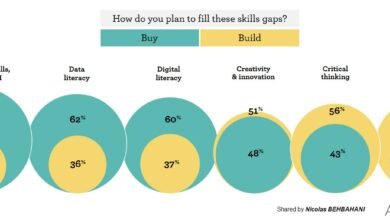5 Reasons Why Empathy Is an Essential Recruiting Skill, According to Talent Leaders

Source | business.linkedin.com | Samantha McLaren
In the Global Talent Trends 2020 report, released in January of last year, we predicted that empathy would reshape the way employers hired and retained talent in the new decade. Mere weeks later, that prediction came to fruition in ways no one could have anticipated as a global health crisis redefined the way work and hiring happen.
Candidates were not only stressed and anxious, but were facing challenges they’d never experienced before in both their personal and professional lives, which were rapidly starting to blur. For talent professionals, this required a new way of communicating and an increased awareness of what candidates might be dealing with outside of the hiring process.
Now, as we approach the one-year anniversary of the World Health Organization declaring COVID-19 a pandemic, empathy may be an even more important skill for talent professionals than it was in 2020. The initial panic people felt may have given way to restless resignation, but uncertainty and anxiety about the future remain. What’s more, after months of living and working under difficult conditions, many candidates are stressed and burned out, with a recent study showing that 89% of professionals globally feel their work life is getting worse.
This makes it essential for talent professionals to practice empathy at every stage of the hiring process to attract great candidates and show that your company cares. Here’s how talent leaders view the role of empathy in hiring — and what you can do to make it a defining feature of your team’s approach.
Empathy makes for stronger recruiting teams
When you practice empathy within your team culture, making it a core part of your external-facing efforts should come naturally. This means approaching every interaction with your team and hiring managers from a place of compassion and understanding — recognizing that they may be dealing with pressures of their own and providing greater flexibility when required.
Philipp Parker, who leads global talent acquisition at Munich Re, says his company has shifted from a performance management–driven culture to one built around continuous conversations. Team members now play a more active role in establishing their commitments and deliverables, and ongoing feedback is prioritized.
“We are much more open in our communications with each other, both upwards and downwards,” Philipp says. “I believe that this is only possible with empathy and really trying to understand what might be important for the person sitting across from you. Of course, this ties into the recruitment process as well, [helping us] match the candidates in front of us to the existing value set we have within the company.”
To adopt a similar approach with your team and your hiring managers, Emily Atkins, LinkedIn’s head of talent acquisition for Australia and New Zealand, recommends starting meetings by gaining a better understanding of a person’s circumstances. This can help you work collaboratively to set more realistic deadlines and expectations.
“Ask ‘How’s it going?’” Emily says. “‘What’s happening in your world?’”






